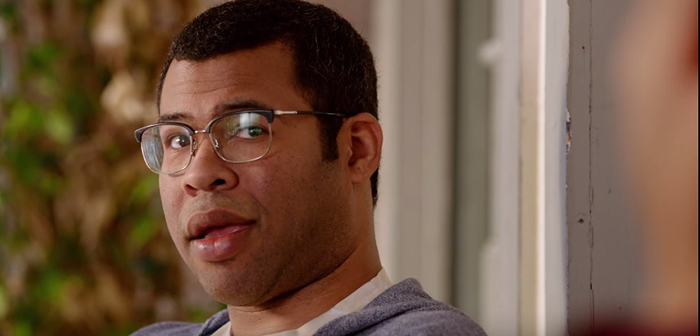Best Films of the 2010s: Part 3
December 18, 2019
Get Out
Directed by Jordan Peele
The plot: An African-American man named Chris (Daniel Kaluuya) goes with his white girlfriend Rose (Allison Williams) to meet her parents. Chris soon finds that the parents react strangely to African-Americans and discovers a shocking secret about their family.
What Makes It Great: I know you probably are thinking from that plot description that Get Out is a film that calls out racism. While Get Out is about racism, it chooses to bring up a more subtle form of discrimination in America instead of the more obvious prejudice that is talked about in most films. Director and writer Jordan Peele chooses to expose a strong liberal ignorance that is just as sinister as burning crosses and men in white cloaks. Rose’s family loves to point out how not “not racist” they are by bringing up how they would have voted for Obama a third time and how when discussing golf, they definitely know Tiger. Of course, the social commentary talks about much more than white men bringing up black culture to seem “hip”. It’s about how certain “liberals” will try overly hard to seem progressive yet they will not try to alter or acknowledge a system that benefits one race over another. However, even that seems like an oversimplification of everything this film wants to bring up. While the satire of our shallow entertainment industry from Birdman and the analysis of our attention-hungry news media in Nightcrawler are both brilliant, I must admit Get Out easily has the best social commentary of the decade. In fact, when this film came out, a college created a UCLA course solely dedicated to dissecting this movie’s racial commentary in every single scene (you can even take it online). While this might sound ridiculous, it shows how this film impacted so many who see this hidden problem every day. Get Out is one of the smartest and most complex films of this decade that will no doubt leave an impact on its audience.
The Irishman
Directed by Martin Scorcese
The plot: Loosely based on a true story, Frank “Irishman” Sheeran (Robert DeNiro) looks back on his life from when he joined the mafia due to mobster Russel Bufalino (Joe Pesci) to his time helping and eventually killing Union head Jimmy Hoffa (Al Pacino.)
What Makes It So Great: Martin Scorcese is possibly one of the greatest directors in human history and The Irishman is just another great film to add to his record. As always, Scorsese’s sharp camera angles impress as the audience feels like they’re teleported into the screen with DeNiro. Speaking of which, DeNiro, Pesci and Pacino are all phenomenal in this film. They each bring just the right amount of empathy to their characters but not so much that you sympathize with these awful gangsters. Many people will compare this film with Scorcese’s most famous masterpiece: Goodfellas. I think that these two films contrast each other in an interesting way. While Goodfellas is seen through the eyes of a man who loves the mafia and the life it gives him, The Irishman is seen through the lens of a man who discovers what “the life” truly leads to. This film shows that our sins always catch up to us. One of my favorite directors working today, Guillermo del Toro summed up The Irishman beautifully in this quote: “It’s the anti ”My Way” (played in every gangster wedding in the world). Regrets they had more than few. The road cannot be undone and we all face the balance at the end.” Scorsese demonstrates that the life of a sinner takes a toll. Throughout the film, the titular Irishman loses the respect of his family, is forced to put bullets in his friends and watches his world crumble as he grows closer to a cold death. The Irishman is a somber goodbye to the gangsters of old and a tale of where our choices in life ultimately lead.
Annihilation
Directed by Alex Garland
The plot: A biologist named Lena (Natalie Portman) goes with a group of scientists to find the source of a mysterious phenomenon called “The Shimmer”: a colorful domed area filled with mutated plants and animals, that is steadily growing along the American coastline.
What Makes It Great: Annihilation is a film that is not made to please the mainstream crowd. It was a huge flop at the box office and Paramount, the studio behind the film was not confident in it, so it was sent directly to Netflix in every country except the United States. However, I think all this happened not because Annihilation is bad, but because it challenges it’s audience far more than the average sci-fi film. It asks thought-provoking questions about ourselves through the disturbing atmosphere the film creates. Director Alex Garland shows that the Shimmer is beautiful in many ways, however he always captures the feeling of menace behind the menagerie of these awe inspiring mutations. Every new species in this area seems like a natural wonder yet they all betray a subtle mood of horror. Another piece of the fantastically crafted unease is how the Shimmer changes your body and mind. I won’t spoil it, but I will say that the dreadful feeling of becoming something that is not quite human is handled so chillingly that I never quite felt secure while watching the film. The last thing I should say about Annihilation is that the ending is very ambiguous. The ending does not have straight answers to questions since this film instead wants its audience to come to their own conclusion about what the story meant. To me, Annihilation is about how humans are masters of their own emotional self-destruction and how our pain drives us to it. Annihilation is not your typical sci-fi film and that is why it is great.
Django Unchained
Directed by Quinten Tarintino
The plot: In the American South, during the pre-Civil War era, a rescued slave named Django (Jaime Foxx) and a German bounty hunter (Christoph Waltz) go to free Django’s wife Broomhilda (Kerry Washington) from her despicable owner (Leonardo DiCaprio).
What Makes It Great: Django Unchained is probably the easiest film to write about on this list because it’s the easiest for me to see the reason for its brilliance: Quinten Tarintino. Breaking out in the 1990s, this director/writer has pumped out great movie after great movie, making him one of the few filmmakers who studios will give complete creative control over a project. There are many things people associate with Tarintino movies like extreme language and violence. However, what I mostly think of when it comes to the famed director is his way of writing dialogue. Each line in Django Unchained is so realistic, witty, and clever that I am always glued to the screen because of it. Of course, Quinten Tarintino is not the sole reason this film works as the performances are excellent as well. Jaime Foxx plays his character extremely well as the silent slave who slowly becomes more of his own person once he is free. DiCaprio also delivers a great performance as this over-the-top but intimidating slave owner. Despite those two great portrayals though, Christoph Waltz is my personal favorite actor in Django Unchained. His sly yet charming bounty hunter makes for one of the most engaging roles of the decade. Django Unchained is another chaotic but brilliant Tarintino film.






